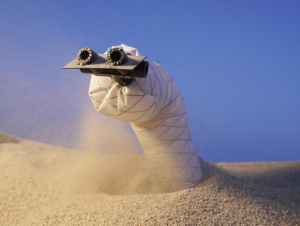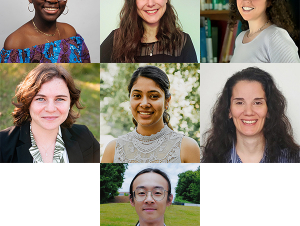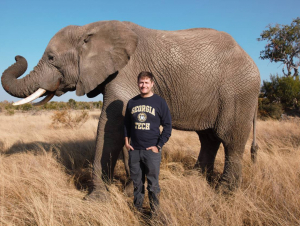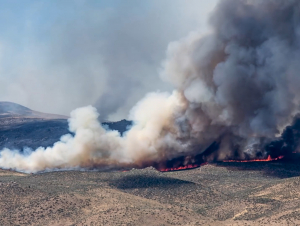To request a media interview, please reach out to experts using the faculty directories for each of our six schools, or contact Jess Hunt-Ralston, College of Sciences communications director. A list of faculty experts is also available to journalists upon request.
Latest News
We’ve seen robots take to the air, dive beneath the waves, and perform all sorts of maneuvers on land. Now, physicists at Georgia Tech and engineers at UC Santa Barbara are exploring the shallow underground world with a fast, steerable, burrowing soft robot.
SPRUCE experiment study shows elevated levels of greenhouse gases emerging from carbon-rich peatlands
The inaugural class of seven Brook Byers Institute for Sustainable Systems (BBISS) Graduate Fellows was recently selected for a 2-year program of working, studying, and training as an interdisciplinary sustainability research team. Launching in the Fall of 2021 with funding provided by a generous gift from Brook and Shawn Byers and guidance from a Faculty Advisory Board, the BBISS Graduate Fellows will receive supplemental training in sustainability, team science, and leadership. They will apply their skills and talents, working directly with their peers, faculty, and external partners on a long-term, large team, sustainability relevant Vertically Integrated Project. They will participate in the organization and hosting of a seminar series in which they will invite and meet global leaders in sustainability, and they will have additional opportunities to develop professional networks, to publish, to draft proposals, to acquire knowledge, and to develop other skills critical to their professional success and relevant to their intellectual interests.
Read More...
Two interdisciplinary research teams have been awarded 2021 Petit Institute Seed Grants. School of Biological Sciences' Alberto Stolfi is teaming up with Coulter Department of Biomedical Engineering's Shu Jia to link novel biological discovery with transformative imaging technology. Liang Han (Biological Sciences) and Costas Arvanitis (Biomedical Engineering) will explore how sound and vibration interact with cell membrane proteins in hopes of creating noninvasive neuroscience tools.
New research from Georgia Tech finds that elephants dilate their nostrils in order to create more space in their trunks, allowing them to store up to 5.5 liters of water. They can also suck up three liters per second — a speed 30 times faster than a human sneeze. Researchers share that the animal's “Swiss Army Knife” could help build better robots.
An assistant professor from the School of Earth and Atmospheric Sciences led a research team that has uncovered evidence of smoke aerosols in the Earth's atmosphere in the past, leading to possible new insight about global climate change's impact.








